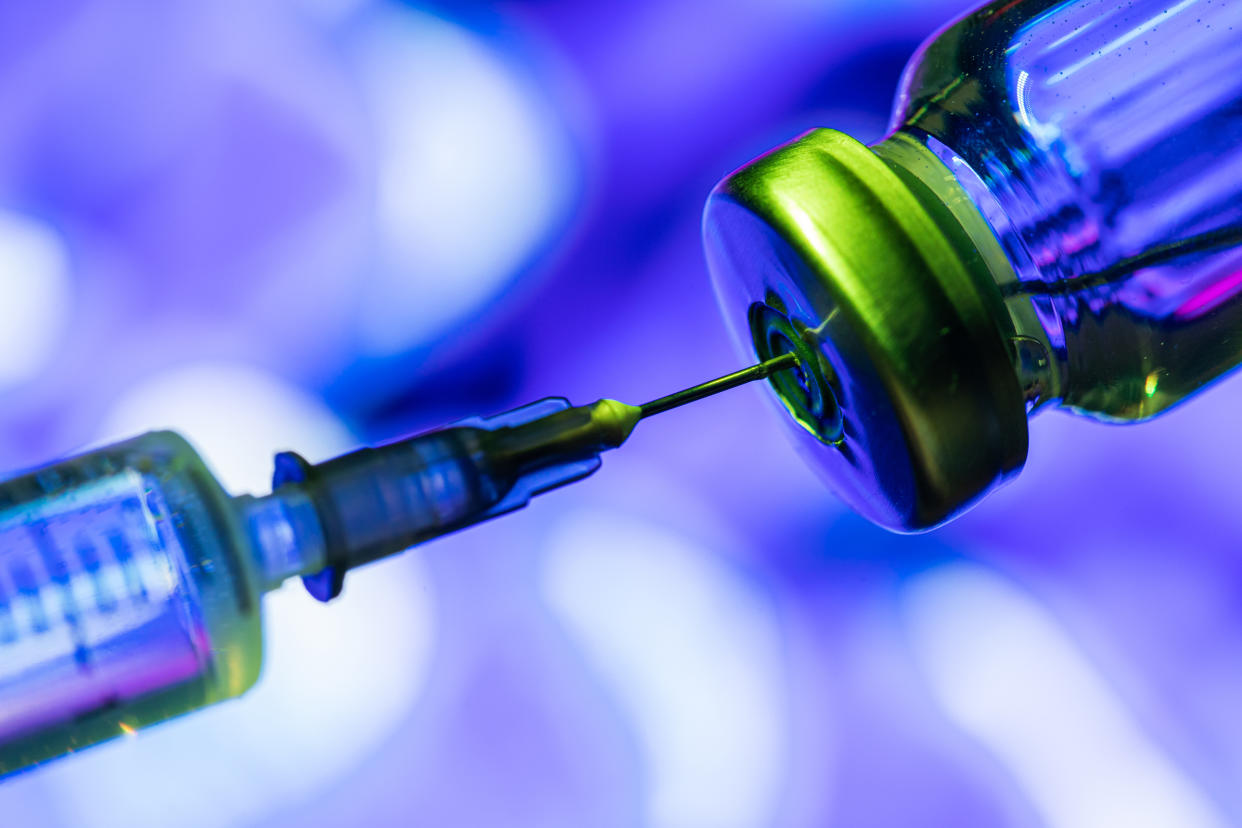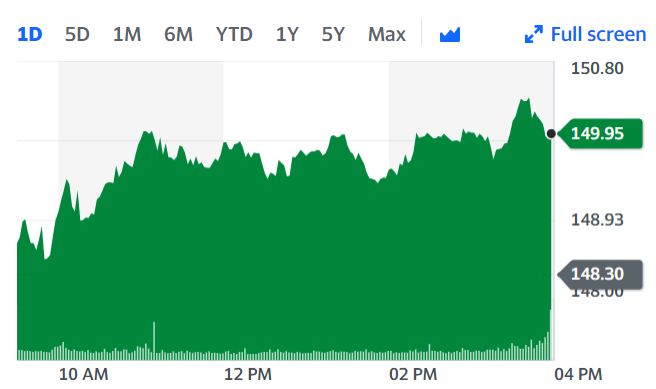Coronavirus: J&J’s Janssen to begin UK vaccine trials

Johnson & Johnson (JNJ) subsidiary Janssen will begin clinical trials of a potential coronavirus vaccine from Monday 16 November, involving 6,000 volunteers across the country, the government announced.
Business secretary, Alok Sharma, said: “The start of further clinical trials in the UK is yet another step forward in the race to discover a safe and effective vaccine, and comes alongside recent news that we could be on the cusp of the first major breakthrough since the pandemic began.”
The UK government has developed a portfolio of six different vaccine candidates and secured access to 350 million doses to date. Of this, 30 million doses of the Janssen vaccine could be made available to the UK, if it is safe and effective, by mid-2021.
The trial is co-funded by the government’s Vaccine Taskforce and the potential vaccine is the third to enter clinical trials in the UK, after ones being developed by US biotech company Novavax (NVAX) and a partnership between the University of Oxford and AstraZeneca.

Six thousand UK volunteers, some from the NHS Vaccines Registry, will take part in the studies at 17 National Institute for Health Research sites, including in Southampton, Bristol, Cardiff and London.
Recruitment into the study will complete in March 2021 and the trial will last for 12 months.
To date, over 300,000 people have signed up to the NHS Vaccines Registry to take part in vital coronavirus vaccine studies.
Experts have cautioned that no one vaccine is likely to be suited for everyone, and that a wide range of types are needed to ensure people across the UK have access to one that works for them.
The government has said the NHS vaccine registry needs volunteers who are most vulnerable to the effects of coronavirus, including frontline health and social care workers and people from Black, Asian and ethnic minority backgrounds.
Chair of the government’s Vaccine Taskforce, Kate Bingham said: “Many vaccines are needed both here in the UK, and globally, to ensure we can provide a safe and effective vaccine for the whole population. That is why the launch of this trial to establish the safety, effectiveness, and very importantly the durability, of the Janssen vaccine is so significant.”
READ MORE: BioNTech founder on COVID-19 vaccine trial results: 'An important step for the world'
Anyone in the UK can sign up online to take part in the trials through the NHS, giving permission for researchers to contact them if they think you’re a good fit. Volunteers can withdraw permission at any time and request that their details be removed from the registry.
Meanwhile in the US, Janssen will expand its agreement with the government’s Biomedical Advanced Research and Development Authority (BARDA) on the development of a vaccine.
Janssen will invest about $604m (£457m), while BARDA will commit about $454m in additional money. The funds will be used for Janssen’s Phase 3 trial.
As part of its response to COVID-19, the UK has also announced that two new “megalabs” will open in 2021. The government said this “represents an investment in the UK’s epidemic response infrastructure for the future.” The labs will be used to process COVID-19 tests and will also add diagnostic capacity for other critical illnesses, including cancer.
And perhaps the most compelling vaccine-related news to come out recently is that Germany’s BioNTech (BNTX) and its US pharma partner Pfizer (PFE) said their vaccine candidate is more than 90% effective in preventing COVID-19 in a trial of over 43,000 participants.
Watch: COVID-19 circulating in Italy as early as September 2019, scientists claim

 Yahoo News
Yahoo News 
